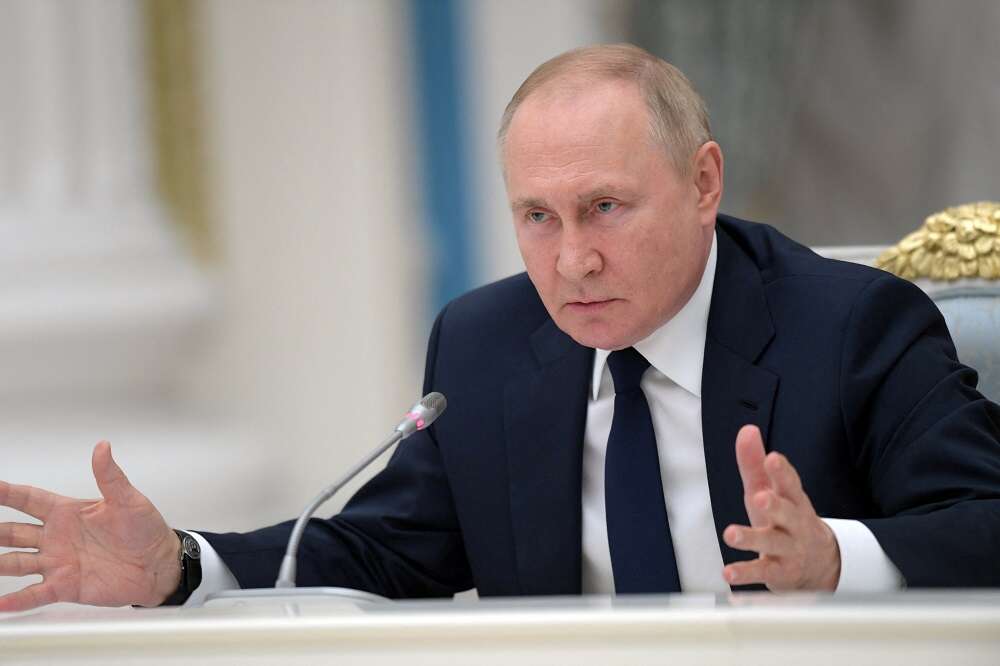
MOSCOW (Reuters) – President Vladimir Putin said on Friday that continued sanctions against Russia could lead to catastrophic energy price rises for European households.
Europe has historically relied on Russia for around 40% of its natural gas, most of it delivered through pipelines.
“We know that the Europeans are trying to replace Russian energy resources,” Putin said at a televised meeting with senior officials.
“However, we expect the result of such actions to be an increase in gas prices on the spot market and an increase in the cost of energy resources for end consumers.
“All this once again shows that sanctions restrictions on Russia cause much more damage to those countries that impose them. Further use of sanctions may lead to even more severe – without exaggeration, even catastrophic – consequences on the global energy market.”
European gas prices soared in 2021 as supply failed to keep pace with demand driven by a recovery from the coronavirus pandemic.
They have leapt again since Russia sent troops into Ukraine on Feb. 24, and the benchmark spot price now stands at more than twice its close on Feb. 23.
Russia began reducing gas flows to Europe in the second half of 2021, with supplies through the three main pipeline routes down around 20% compared with the second half of 2020.
In the last few months, it has cut off flows to Bulgaria, Poland, Finland, Danish supplier Orsted, Dutch firm Gasterra and Shell for its German contracts, after they all rejected a demand to switch to payments in roubles in response to European sanctions over the campaign in Ukraine.
Putin said the situation on the Russian fuel and energy sector remained stable, despite Western sanctions.
But he said Russian energy companies should prepare for a European Union oil embargo set to come into force around the end of the year.
“The government is currently considering options to develop the railway and pipeline infrastructure to supply Russian oil and oil products to friendly countries,” Putin said.
(Reporting by Reuters; editing by Guy Faulconbridge, Kevin Liffey and John Stonestreet)


